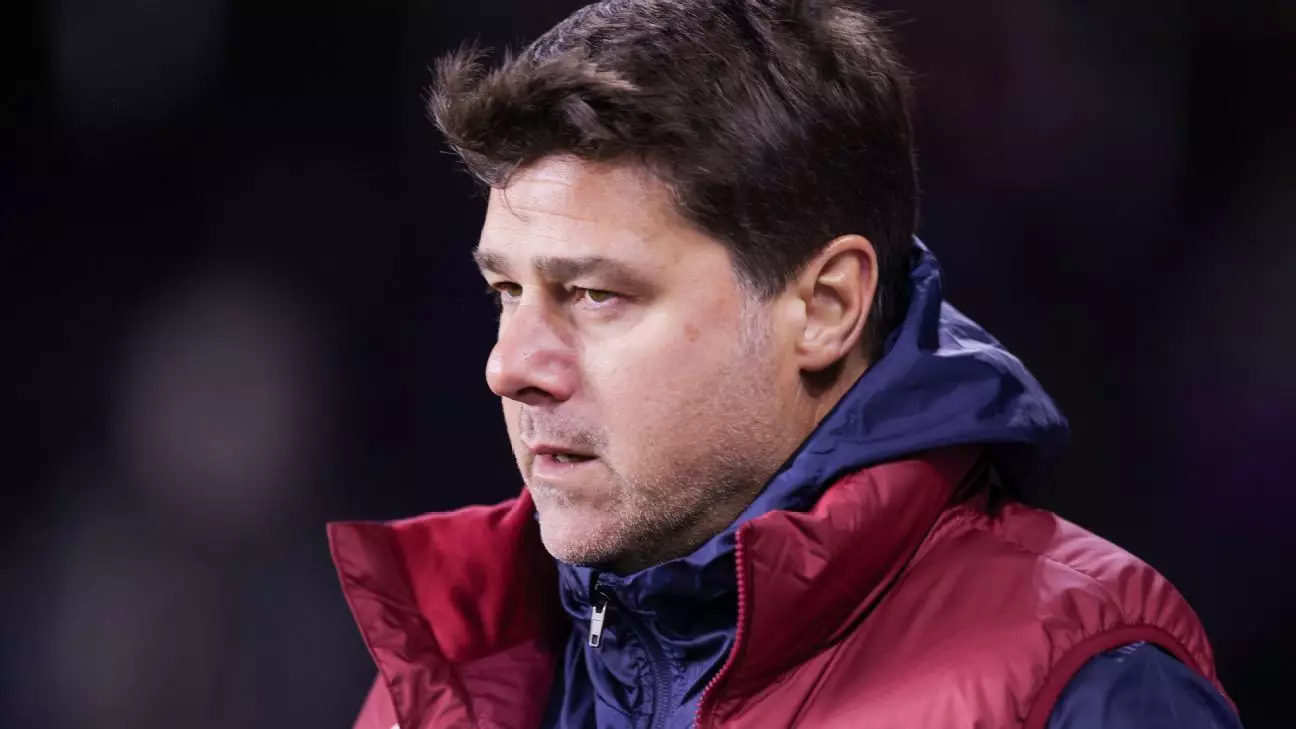In recent times, the realms of sports and politics have collided in ways that few could have anticipated. Last week, the focus was on the Concacaf Nations League semifinal featuring the U.S. men’s national team (USMNT) against Panama. Manager Mauricio Pochettino faced inquiries not just about tactical preparations and player fitness, but also about the wave of political tension surrounding the matchup. With comments from figures like U.S. President Trump regarding Panama’s sovereignty adding fuel to the fire, one might expect heightened reactions. However, Pochettino took a stand, arguing passionately that the field should remain a sanctuary from such discussions. He declared, “It would be a significant mistake to divert our focus to politics,” emphasizing the need for his players to channel their energy into their performance.
Pochettino’s stance prompts a larger conversation about the place of politics in sports. Traditionally, the sporting arena has acted as a unifying platform, transcending borders and ideological divides. Yet, in an era characterized by contentious political climates, this unity is not without challenges. Athletes are often seen as role models, leading to expectations that they comment on societal issues. While some embrace this role, others prefer to channel their efforts toward pure competition, steering clear of political narratives that could distract from their primary objectives.
Restoring Focus to the Game
At the heart of Pochettino’s philosophy lies a compelling understanding of the game itself. “We play for our flag; we play for our country,” he professed, highlighting the deep pride and responsibility that comes with representing national teams. His insistence that players should not get lost in the noise of political discourse resonates with many athletes and coaches who believe that the essence of sport lies in teamwork, strategy, and competitive spirit rather than the tumultuous landscape of geopolitical conversations.
This approach is echoed by Panama’s coach, Thomas Christiansen, who echoed Pochettino’s sentiments by emphasizing that discussions about tactics should take precedence. Reflecting on their own landscape, the tensions between nations can blur within the context of competition, yet Christiansen advocates for keeping the conversation rooted in football. When the final whistle blows, let tactics and skill dictate the outcome, not external circumstances.
The Emotional Landscape of Competition
Interestingly, this detachment from political dialogue doesn’t imply a lack of depth or understanding. Coaches like Jesse Marsch from Canada are acutely aware of the connections between sporting success and national pride. His aspiration for tournaments like the Concacaf Nations League to reflect a positive societal attitude creates a more enriching viewing experience. Marsch believes in taking this opportunity to celebrate the strength of diverse national heritages without allowing external tensions to breach the sanctity of the game day experience.
Across the board, it is clear that while political backgrounds may inform the identities of teams, they do not need to dominate the narratives. Sports possess an innate power to rally nations around common goals, shared passions, and communal aspirations. Players can step onto the pitch as ambassadors of their countries, channeling the energy generated by fans into powerful performances.
A Call for Enjoyment and Celebration
The essence of sports, as Pochettino pointed out, should be about enjoyment. In a world often marred by conflict and division, the beautiful game provides a crucial respite. The opportunity to enjoy outstanding displays of talent, camaraderie, and competition is something that should never be underestimated. By inviting audiences—both in the stadiums and watching globally—to engage with the sport purely, athletes can strip away the distractions of the external world.
Moreover, this belief could serve as a powerful reminder for fans to support their teams in joyous celebration rather than divisive chants. It is an invitation to redirect energy from the sidelines into encouragement and positivity, creating an atmosphere where national pride and the love for the sport fuse harmoniously. In doing so, giving way to a spirit of healthy competition, teams unite to elevate the sport without the burden of political discourse weighing them down.
In navigating this complex intersection of sports and politics, perhaps it is time for all stakeholders—coaches, players, and fans—to collectively embrace Pochettino’s vision and reaffirm the fundamental joy of the sport. After all, soccer is more than a game; it is a conduit for connection, empowerment, and happiness in its truest form.

